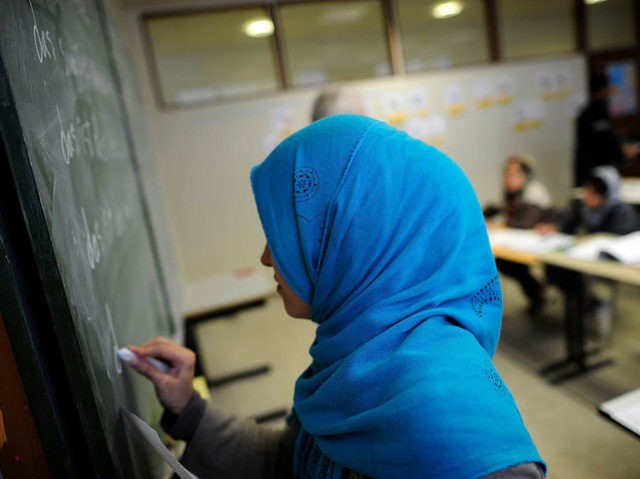A high school in Denmark is under fire for segregating its classrooms by ethnicity after saying the move is to combat the fleeing of white Danish students to other schools.
The high school, located in the city of Aarhus, announced that they would have four classes composed entirely of children from migrant parents, which has led to allegations of discrimination and racism as the three remaining classes are populated by native Danish children, reports Die Welt.
According to Danish news sources, the real reason for splitting the classes along ethnic lines is that the school fears many of the native Danish students will want to move to a new school.
In 2007 the school had a migrant population of around one in every four students. In 2016 four out of five students are either migrants themselves or come from a migrant background via their parents.
Jette Møller, president of the left-wing organisation SOS Racism, said: “It is pure discrimination when people are sorted according to whether they are white or brown Danes.”
The Institute for Human Rights in Denmark also commented saying that the actions may even be illegal. “If the criterion is ethnicity, then it might as well just be colour, and it’s racist,” the group commented.
The school headmaster, Yago Bundgaard, defended the move against critics stating that “in reality, our intention is to precisely prevent discrimination, since it can occur anyway in the interactions between different groups of young people and their different youth cultures.”
The migrant crisis in Europe has only hastened the growing demographic change in many schools across the continent. More schools in some areas are seeing record numbers of pupils from migrant backgrounds.
A school in Germany earlier this year dealt with the very same problem as native German parents attempted to change their children’s school due to an increased number of migrants attending.
The parents claimed that the migrants bully and harass their children, and also disrupt classrooms making it hard for their sons and daughters to learn and succeed.
Where work or volunteering in exchange for government assistance may be perceived as a “punishment” by migrants (over 84 per cent of the welfare recipients in Denmark are non-western migrants), this value system may be passed on to their children, influencing their academic performance.
This may increase concerns by native Danish parents that their children will be affected by this cultural attitude, and, as in Germany, fear their children’s learning will be disrupted.
The issue of integration also may play a role as previous reports have shown that 68 per cent of migrants in Denmark can’t pass a basic knowledge test to gain Danish citizenship.

COMMENTS
Please let us know if you're having issues with commenting.